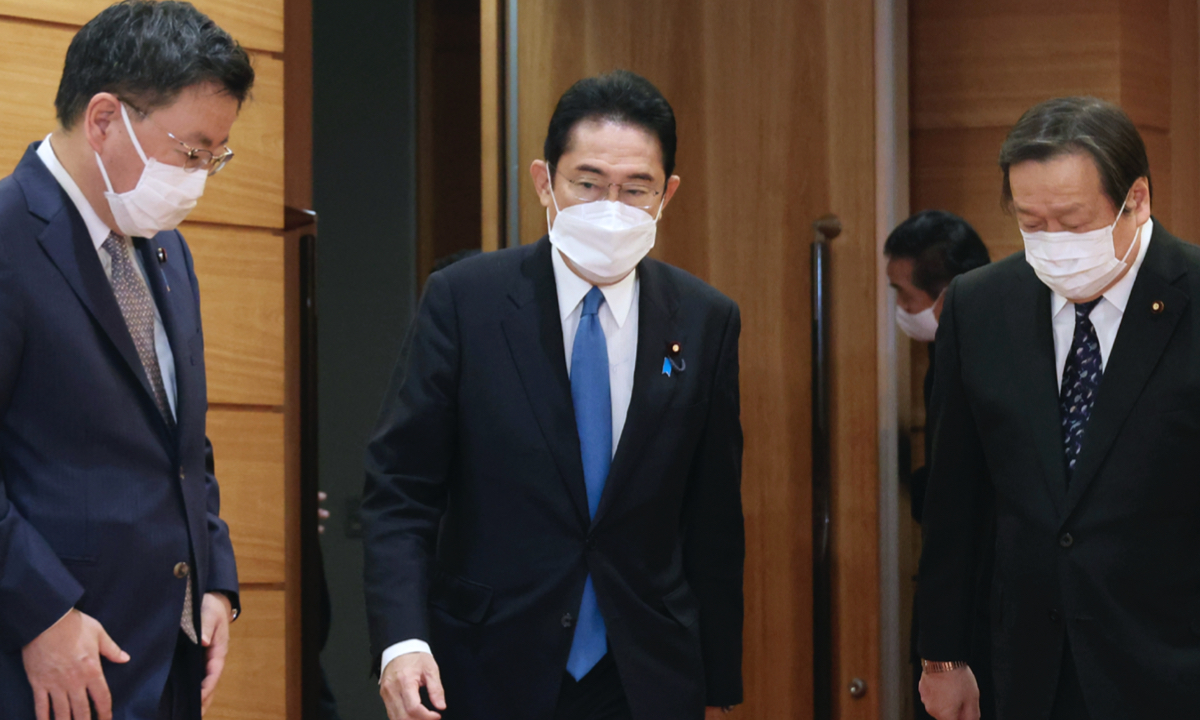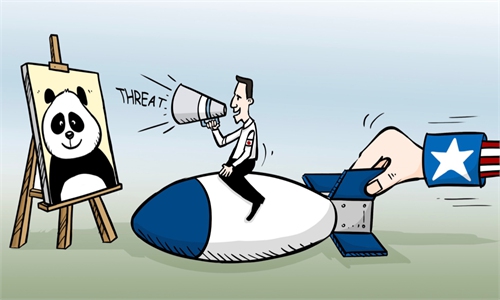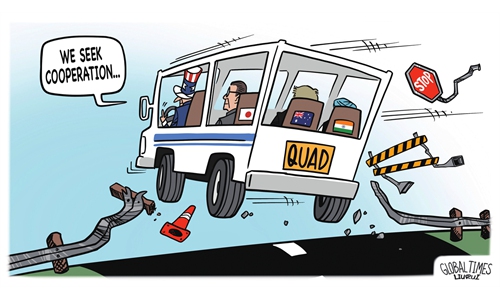China denounces senior Japanese official’s Taiwan visit; ‘irrational move to undermine stability in Straits’

Japanese Prime Minister Fumio Kishida attends a cabinet meeting at the Prime Minister's office in Tokyo on December 6, 2022. The meeting comes a day after he set a new target for military spending over the next five years to 43 trillion yen ($318 billion), or 1.5 times the current level, as the country seeks to build up its defenses. Photo: VCG
China on Monday expressed strong dissatisfaction and firm opposition to the visit of a senior official of Japan’s ruling Liberal Democratic Party (LDP) to Taiwan island and his irresponsible remarks on China during the visit, which came amid Japan’s recent actions to expand its military, citing the so-called China threat as an excuse.
Disregarding China’s solemn stance, a senior official of Japan’s ruling party insisted on visiting Taiwan island of China, meeting with local leader Tsai Ing-wen and the Democratic Progressive Party authorities, and publicly made negative remarks related to China, falsely claiming that “any contingency concerning Taiwan would also be an emergency for Japan,” a spokesperson of the Chinese Embassy in Japan said in a statement on Monday.
The actions seriously violated the one-China principle and the four political documents between China and Japan, and violated Japan's commitments on the Taiwan question. China expresses its strong dissatisfaction and firm opposition to this, the spokesperson said.
During a visit to Taiwan island on Sunday, Koichi Hagiuda, LDP’s policy chief and a former industry minister, pointed to China’s massive increase in military spending, as well as North Korean missile tests, as reasons for Japan to raise its defense budget. “In the face of such a grim reality, half measures have no meaning at all,” he said.
Hagiuda’s visit was the first by a senior LDP official to Taiwan island in 19 years and comes about one week after Japanese Prime Minister Fumio Kishida on December 5 instructed defense and finance ministers to boost the country's defense budget by 56 percent to 43 trillion yen over the five years from fiscal 2023.
It is very rare for a senior official of Japan’s ruling party who is still serving to visit Taiwan island, especially after the country just announced a plan to expand its military expenditure and is revising three key defense documents, Da Zhigang, director of the Institute of Northeast Asian Studies at Heilongjiang Provincial Academy of Social Sciences, told the Global Times on Monday.
Da said Hagiuda’s visit is aimed at exchanging information with Taiwan island over Japan’s military expansion plan, which would encourage “Taiwan-independence” secessionists on the island in practice.
They are likely to hold talks about how Taiwan could enhance the island’s armed forces to interact with Japan, Da said.
The Taiwan question concerns China’s sovereignty and territorial integrity, and is at the core of China's core interests. How to deal with this question will test Japan’s ability to maintain the political foundation of China-Japan relations and basic faith of bilateral exchanges, the spokesperson of the Chinese Embassy in Japan said in the Monday statement.
This time, the Japanese politicians colluded with the “Taiwan independence” secessionists to send out wrong signals, once again letting the world see clearly who is the troublemaker that is undermining peace and stability in the Taiwan Straits, the spokesperson said, urging Japan to immediately stop any form of official exchanges with Taiwan island and abandon its political manipulation of the island to contain China.
Although unusual, experts noted that Hagiuda’s visit to Taiwan island is not accidental, considering the continuous efforts made by the Japanese government since the Shinzo Abe administration toward revival of militarism.
Japan’s fundamental goal is to become a “normal country”, and its specific strategy is to promote military expansion by hyping up the “China threat” in order to strengthen Japan’s military deployment and enhance its military power, experts noted.
Many of Japan’s recent military actions are targeting China. For example, The Yomiuri Shimbun newspaper reported on December 4 that the Ministry of Defense is considering establishing a group within the Ground Self-Defense Force to defend the Nansei island chain, comprising Okinawa prefecture and parts of southern Kyushu.
This move is aimed at improving the defense capabilities of the Japanese Self-Defense Forces near Taiwan island so that if "any contingency concerning Taiwan" happens, Tokyo can respond to it, according to experts.
The expanded military spending Kishida ordered is set to be used for items such as stockpiling missiles capable of striking military targets in China, Russia and North Korea, according to media reports.
According to the outline obtained by NHK, the National Defense Strategy - which is one of the three key defense documents that the Japanese government is revising by the end of the year and is set to replace the current National Defense Program Guidelines – says that Japan will possess capabilities to launch a counterstrike on missile-firing sites and other enemy targets. The document also mentions China’s launch of a ballistic missile that fell within Japan’s exclusive economic zone in August and said that it was considered by people in Japan and the region to be a threat.
Japan’s actions are irrational and not conducive to regional peace and stability. These moves will only exacerbate an arms race in the region and turn Northeast Asia into a powder keg, Da said, noting that these moves would only harm China-Japan relations while the two countries still have vast space for cooperation and interests in economy, trade and people-to-people exchanges.
In 2021, total bilateral trade between China and Japan reached $371.4 billion, a year-on-year increase of 17.1 percent, data from the Chinese Ministry of Commerce shows. China has been Japan's largest trading partner for 15 consecutive years.


